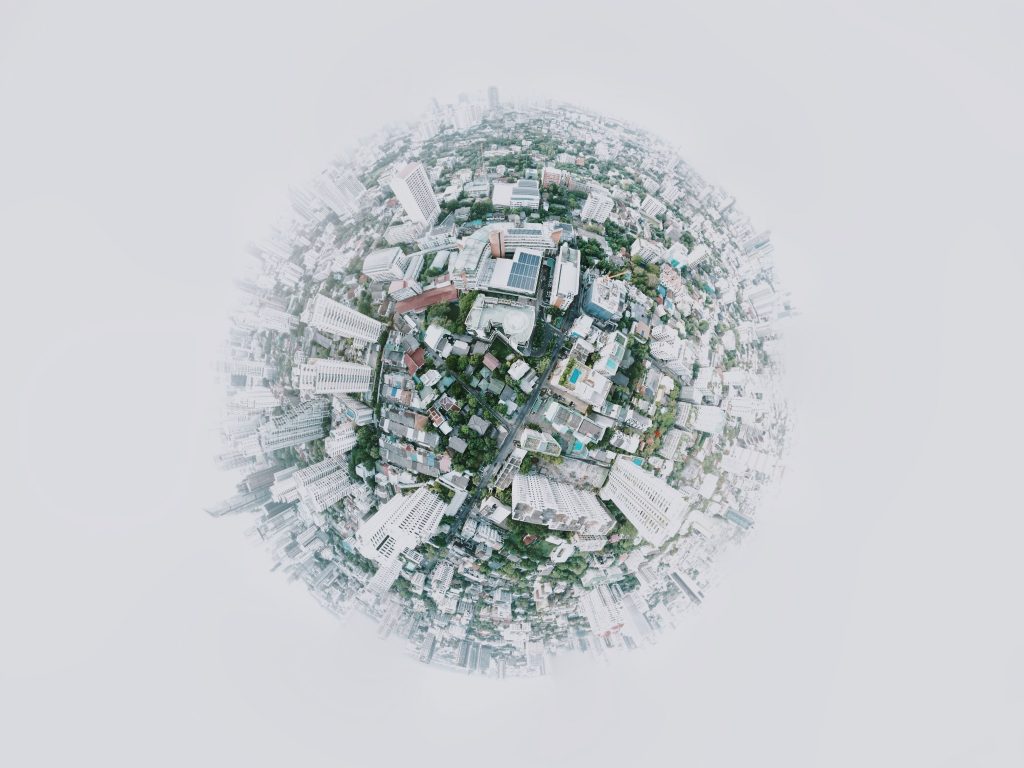
Navigating a Shrinking World: The Globalisation of Risk
Article by Verity Rudin
Photo by Joshua Rawson-Harris on Unsplash
Globalisation has shaped the world into an increasingly interconnected society whereby the limits of time and geographical boundaries have become meaningless. It has fused cultures, with the processes of McDonaldisation[1] and Disneyfication running rife, as well as abolishing the limits of distances through technologies where we are connected no matter the continent. Yet, globalisation has also freed threats and risks, liberating them from the constraints of geographic borders, allowing them to torment countries across the globe untraceable. This newfound globalisation of risk, felt through pandemics, antibiotic resistance, climate change and cyber-attacks is a rising concern to society with little means of prevention available due to the sudden nature of this phenomenon. As a sociology student, I find myself ruminating over these issues which will severely impact my future and more importantly concerned about what my generation will do to combat this risk epidemic.
It is hard to grasp that an invisible virus was able to bring the most impressive nations around the globe to a standstill and alter perceptions, practices, and procedures forever. The recent covid 19 pandemic that scoured the globe in a matter of months was not only a health crisis but a revelation, to how whilst advancements in technology, specifically global transport, have accelerated development globally, they have also left us more vulnerable. This recent interconnectedness of the globe has provided the perfect conditions for superbugs to run rampant. Interestingly the vulnerability of the human race to pandemics was recognised by Bloom and Cadarette[2] before the outbreak of the recent COVID-19 pandemic, highlighting the risks posed by globalisation being evident for a significant amount of time yet still there is a lack of preventative measures. Time place compression and the effective shrinking of space allow people to travel across continents in a few hours, this interconnectedness may be humanity’s downfall. In addition, this same reliance on technology has again increased risk and left humanity vulnerable to an “AI apocalypse.” Gawdat emphasises by 2029 it is predicted that AI will break out of specific tasks into general intelligence. At this point, these machines will be smarter than the humans that made them. Whilst this can be interpreted positively as AI helping drive development forward, it does bring unprecedented risk.[3]
Humanities’ rampant growth and technological progress have left us vulnerable to new risks like anti-biotic resistance and cyber-attacks. Both, being able to take advantage of our global interconnections unseen makes it much more difficult to combat. One thrives in our mistakes in the overuse of medical breakthroughs, festering until it has the potential to render our strongest medicinal weapon futile. Globalisation is easily recognisable as the main factor for the pressing risk of antibiotic resistance, as argued by the WHO, WIPO, and WTO[4] where they determine, “Globalisation fuels the spread of antimicrobial resistance where transmission is facilitated by increased trade, travel and both human and animal migration.” Cyber-attacks lay dormant, anonymous protected by the complex nature of our technologies and thriving off our society’s digital dependence as well as globalisation. In the article, “The Impact of Globalisation on Cybercrimes,” Banerjee recognises the direct correlation between globalisation and an increase in cybercrimes.[5] Globalisation has facilitated the growth in the digital sphere, therefore allowing the perpetrator to go undetected, and faceless.
However, one risk that we cannot run from or escape as a society is climate change a ticking time bomb, that is left ignored by the key figures that hold the power to make change. Despite the damage being done now we are not seeing immediate catastrophic impacts, making it easier for it to be ignored until too late. With no acknowledgement of physical or human-made boundaries climate change, is being referred to as the next generation’s problem. Despite already being a risk, climate change creates a breeding ground for more with; storms, fires and floods flourishing of the rise in temperature running rampant across the globe and engulfing anything in their way.
Lastly, in a society structured by wealth, class, and development levels, it is interesting to acknowledge that this novelty age of risk brought on by globalisation has little regard for these factors. Could be viewed as ‘an equaliser’ as all money will eventually be rendered useless if we do not combat these risks. Whilst in the short term they will exacerbate these disparities it is evident that these risks have no regard for socio-economic strata.
Footnote:
[1] https://onlinelibrary.wiley.com/doi/10.1111/j.1542-734X.1983.0601_100.x
Ritzer, G. (1983). The ‘McDonaldization’ of Society. The Journal of American Culture, 6(1), pp.100–107. doi:https://doi.org/10.1111/j.1542-734x.1983.0601_100.x.
[2] https://www.frontiersin.org/articles/10.3389/fimmu.2019.00549/full
Bloom, D.E. and Cadarette, D. (2019). Infectious Disease Threats in the Twenty-First Century: Strengthening the Global Response. Frontiers in Immunology, [online] 10(549). doi:https://doi.org/10.3389/fimmu.2019.00549.
[3] Gawdat, M. (2021). Scary Smart: The Future of Artificial Intelligence and How You Can Save Our World. [online] Google Books. Pan Macmillan. Available at: https://books.google.co.uk/books?hl=en&lr=&id=DTMlEAAAQBAJ&oi=fnd&pg=PT5&dq=mo+gawdat&ots=fQhJCnizNj&sig=mz6B3OJRkWeUjpuYKjnVkh3smX4&redir_esc=y#v=onepage&q=mo%20gawdat&f=false [Accessed 6 Nov. 2023].
[4] WHO (2016). Antimicrobial Resistance – a Global Epidemic. [online] Available at: https://www.wto.org/english/news_e/news16_e/heal_29aug16_e.pdf.
[5] Banerjee, S. (2021). Impact of globalization on cybercrimes. [online] iPleaders. Available at: https://blog.ipleaders.in/impact-of-globalization-on-cybercrimes/#:~:text=Therefore%2C%20globalization%20and%20ICT%20together.

0 Comments